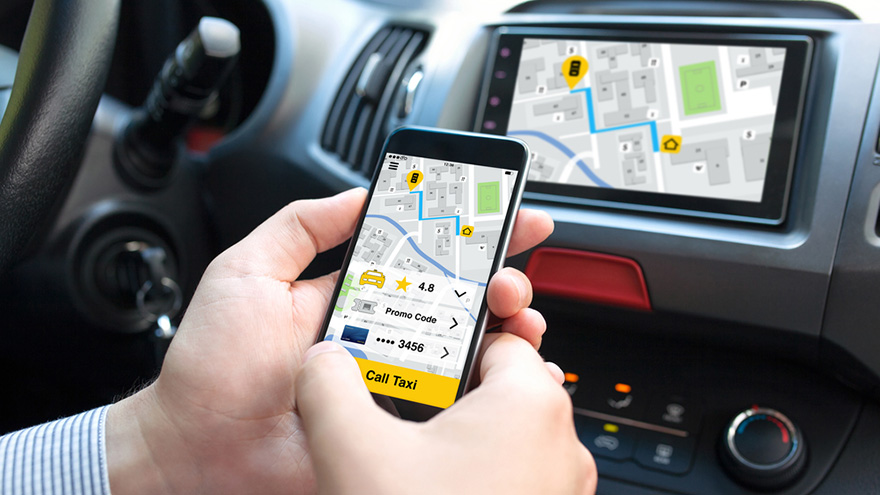Deloitte focused on three new technologies in an annual report that highlights on the latest trends that experts described as creating a climate of disruption and uncertainty.
The report titled, “Tech Trends 2019: Beyond the digital frontier,” explored how the convergence of new technologies with powerful forces is driving disruption across industries. According to a recap shared on Wednesday, those new technologies include advanced networking, serverless computing and intelligent interfaces as well as technological forces encompassing digital experiences, cognitive and cloud.
Back 10 years ago, when smartphones and mobile apps were gaining traction, and technologies like cloud and the Internet of Things were emerging on the scene, Deloitte released its first Tech Trends report. The organization has watched this evolution unfold as the digital imperative and the changing role of technology redefine the enterprise, yet adoption of these trends continues to vary widely.
Experts noted that some companies are only beginning to explore trends Deloitte wrote about in 2010, while others have advanced rapidly along the maturity curve.
“Make no mistake: Technology is not just an enabling function. Tech is the universal language of business today,” said Bill Briggs, global and U.S. chief technology officer for Deloitte Consulting.
“As the pace of change quickens, technology now leads business strategy. And technology trends has evolved from a CIO (chief information officer) and CTO (chief technology officer) concern into something driving CEO, management team, boardroom agendas — to redefine what enterprises can accomplish,” Briggs continued.
Authors recapped that “Tech Trends 2019: Beyond the digital frontier,” begins with a reflection on a decade of disruptive change driven by nine macro forces: digital experience, analytics, cloud, core modernization, cyber, business of information technology, cognitive, blockchain, and digital reality. The report further explores where these forces are headed.
Next, six trends that are giving rise to new operating models, redefining the nature of work and dramatically changing IT’s relationship with the business are detailed, including:
— AI-fueled organizations: Leading companies are systematically deploying rapidly maturing technologies — machine learning, natural language processing, robotic process automation (RPA) and cognitive — not just to every core business process, but into products, services and the future of industries. Deloitte believes organizations’ use of artificial intelligence is moving from “Why?” to “Why not?”
— NoOps in a serverless world: Experts asserted we’ve reached the next stage in the evolution of cloud computing with technical resources completely abstracted and management tasks increasingly automated. Freed from mundane responsibilities, the report noted IT talent can focus on activities that more directly support business outcomes.
— Connectivity of tomorrow: At both macro and micro levels, Deloitte explained technologies like 5G, mesh networks and edge computing are expanding business’ reach to both the far corners of the world — and the smallest spaces in warehouses, retail stores and other places with utmost precision. Experts contend that advanced networking is the “unsung hero,” driving development of new products and services and is transforming how work gets done.
—Intelligent interfaces: Today, Deloitte pointed out that people interact with technology through ever more intelligent interfaces that combine the latest in human-centered design techniques with leading-edge technologies such as computer vision, conversational voice, auditory analytics, augmented reality and virtual reality. Working in concert, experts see these technologies and techniques are transforming the way we engage with machines, data and each other.
— Beyond marketing with a reimagined experience: To deliver the highly personalized, contextualized experiences that today’s customers expect, Deloitte mentioned that some chief marketing officers are trading long-standing, traditional agency relationships for closer partnerships with their own CIOs. Enabled by a new generation of marketing tools and techniques focused on personalized, contextual and dynamic experiences, experts indicated that CIOs and CMOs can illuminate and engage customer needs and desires most effectively.
— DevSecOps and the cyber imperative: Deloitte explained that DevSecOps fundamentally can transform cyber, security, privacy and risk management from being compliance-based activities — typically undertaken late in the development lifecycle — into essential framing mindsets across the product journey.
The report closes by exploring how modern businesses can navigate digital transformation — building a roadmap that incorporates the right technologies, techniques, talent and executive support.
“While we take a pragmatic view, we also aspire to understand fully how forces like serverless technology, connectivity capabilities, and intelligent interfaces are reshaping industries,” said Scott Buchholz, managing director and government and public services chief technology officer at Deloitte Consulting.
“The report details how organizational leadership can shape ambitions and instill a culture to sense and make sense of what tomorrow may bring. And – importantly – a path to get there from the realities of today,” Buchholz went on to say.
The entire report can be downloaded here.
Modern vehicles generate literally thousands of data points that can be valuable to dealerships, finance companies and other service providers. It appears gaining access to that information is a growing concern for vehicle owners.
More than 8 in 10 U.S. vehicle owners and lessees believe owners should have full access to and control of their vehicle’s data, including maintenance and repair information, according to the results of a survey released by the Auto Care Association.
The survey, conducted in August by Ipsos, a global, independent market research company, found 86 percent of consumers said vehicle owners should have access to driver and vehicle data, also known as telematics.
Additionally, the survey found 88 percent of consumers believe a vehicle’s owner should decide who has access to this data.
The findings from this survey come at a time when there is continued debate over vehicle data. Each year, officials acknowledged that vehicles get “smarter” and infused with telematic technologies, which can enable real-time, wireless transmission of information related to driving behavior, such as steering, acceleration and breaking; and vehicle health, including fuel use, emissions and engine hours.
However, as this technology has advanced, the Auto Care Association cautioned that vehicle manufacturers are gaining exclusive access to vehicle data at the expense of consumers.
“These results should be a wake-up call to automakers,” said Bill Hanvey, president and chief executive officer of Auto Care Association, an industry trade group representing 4.6 million jobs from coast-to-coast.
“At a time when Americans don’t see eye to eye on many issues, the results of this survey revealed a large majority of consumers support their right to gain full access to their vehicle data,” Hanvey continued.
“Without the right to control where their data goes, car owners may face greater inconvenience, greater cost and fewer options for taking care of their vehicle,” Hanvey added.
Among the survey’s most notable findings was a low awareness of telematics, a form of wireless technology in vehicles that aims to make the driving experience safer and more convenient through monitoring and data collection, including maintenance and repair information.
Nearly 3 in 4 consumers (72 percent) said they had not heard anything about telematics. Once provided with a definition, 63 percent of respondents still said they were not very or not at all familiar with telematics.
The implications for this lack of awareness were also apparent, according to the Auto Care Association.
“Remote diagnosis of vehicle problems is one of the primary selling points of telematics; however, as of today, only vehicle manufacturers can take advantage of this information. As a result, vehicle owners have little to no choice when it comes to servicing their vehicle,” the association said.
The survey found 71 percent of respondents incorrectly assumed that the vehicle owner has access to driver and vehicle data, which was greater than the percentage of respondents who assumed the vehicle manufacturer and the dealership have access to this data (59 percent and 44 percent, respectively).
And nearly half of respondents (45 percent) incorrectly believed that vehicle owners own their vehicle’s data.
The survey’s respondents also reported mixed feelings about advancements in vehicle technology:
• Eighty percent agreed that the advancements in safety technology in vehicles make them feel safer on the road. However, 70 percent said they believe technological advancements in vehicles are making drivers too dependent on safety features.
• Fifty percent said they are skeptical of new technology in vehicles.
• Fifty-nine percent said they specifically look for new technology features in vehicles they are considering to purchase or lease, while 45 percent prefer vehicles with less technology features.
These are the findings from an Ipsos poll conducted August 22-30 on behalf of Auto Care Association. For the survey, a sample of 4,581 adults ages 18 and older from the continental United States, Alaska and Hawaii were interviewed online in English. This figure includes 3,854 adults who currently own or lease a vehicle.
To view a summary of the survey results and get more information, visit autocare.org/telematics.
Experian Automotive previously reported that monthly payments for new-vehicle retail installment contracts originated during the first quarter reached a record high at $523. The monthly payment for a used model approached $400 with analysts pinpointing it at $372.
On Tuesday, Ally Financial released results of a poll that showed the depth of consumers who have encountered a vehicle repair bill similar to that figure — or even double or more than triple that monthly installment commitment.
Ally Financial based its survey on the premise that many American drivers who have to pay for unexpected, major car repairs could be at risk of facing costs they cannot afford.
According to a survey of more than 2,000 Americans conducted online for Ally Financial by The Harris Poll, 51 percent of consumers reported paying for major vehicle repairs in the last five years.
Of consumers who reported paying for repairs, four in five (80 percent) said they spent $500 or more, and nearly three in five (58 percent) said they spent $1,000 or more. One in three (33 percent) said they spent $2,000 or more.
Meanwhile, a 2018 Federal Reserve study found that when faced with an unexpected $400 emergency expense, 41 percent of adults either could not pay the expense, or would need to borrow money or sell something to cover it.
Ally Financial explained this means that a significant portion of drivers who are faced with unexpected repairs could not cover them out-of-pocket.
“Expensive car repairs can cause serious financial stress, especially for those with little or no emergency savings,” said Mark Manzo, president of Ally Insurance. “Most major vehicle repairs come unexpectedly, and standard insurance policies usually only cover repairs in case of accidents.
“The rise of complex vehicle technology and the increase in the number of used vehicles on the road have only made repairs more expensive and frequent,” Manzo continued.
As dealerships and finance companies certainly know, there is a solution that could help many consumers — vehicle service contracts — which can cover repairs that often are not covered by factory warranties or are no longer covered by expired warranties.
Only 18 percent of those surveyed reported buying a VSC in the last five years. Nearly three in five (59 percent) of those who had purchased VSCs said the peace of mind that comes from knowing repairs are covered was the top motivator for buying the coverage.
“Service contracts provide customers with the security of knowing they don’t have to worry about car repair bills derailing their budgets or putting them in debt,” Manzo said. “Payments for some VSCs can be rolled into regular auto payments, making it easier for consumers to budget and map out their expenses ahead of time.
“You can’t know when to expect the unexpected, but you can plan ahead by talking to your dealer about vehicle service contracts,” he went on to say.
Ally Premier Protection vehicle service contracts can cover more than 7,400 vehicle components and offer additional benefits including rental reimbursement, roadside assistance and reimbursement for trip interruption caused by a breakdown.
For more information, visit the Ally Premier Protection website.
The survey was conducted online within the United States by The Harris Poll on behalf of Ally from January 5-9 among 2,064 U.S. adults ages 18 and older.
“This online survey is not based on a probability sample and therefore no estimate of theoretical sampling error can be calculated,” officials said.
LexisNexis Risk Solutions, a leading provider of data, analytics and technology, recently made a multi-million dollar investment in the formation of a new global connected car team.
The company highlighted the team of more than 35 experts has been created to help automakers and insurers share data and analytics to deliver the next generation of mobility and connected car services and insights to improve customer experience for both industries.
The LexisNexis Risk Solutions Connected Car team plans to grow to 100 dedicated specialists over the next five years.
LexisNexis Risk Solutions works with 95 of the top 100 U.S. personal lines insurers, more than 90 percent of the U.K. motor insurance market, and insurers across Brazil, India, China and Spain.
Leveraging the company’s strong pedigree in delivering data insights across the consumer value chain for marketing, underwriting and risk assessment, compliance and collision decisions, the team consists of experts in data science, technology, and product and market strategies. Collectively it has more than 125 years’ experience in automotive, telematics and technology.
Led by Adam Hudson, senior director of product management for U.S. connected car, and Rutger van der Wall, vice president of global products, LexisNexis Risk Solutions indicated the team will help accelerate the company’s commitment to developing solutions that bridge the insurance and automotive manufacturing industries.
“We’ve established the connected car team to enable us to innovate and execute quickly, as well as respond to the increasing pace and interest between automakers and insurance providers to engage consumers with driving behavior information, collision detection and other programs that connectivity enables,” Hudson said.
“Automakers and car insurers alike want to know more about their customers to better serve them throughout the lifecycle of vehicle ownership and through life events that change a consumer’s needs,” Hudson continued.
“Today, 85 percent of U.S. auto insurers use a LexisNexis prefill solution, which is focused on ease of use for the consumer, improved accuracy and a better experience throughout the customer journey,” he went on to say.
The Connected Car team is working on delivering next-generation services utilizing on-board telematics data with the growing volume of vehicles now connected to the internet.
“Investment in this new connected car team signals a transformational approach and focus on this market, one that we feel best positions us to deliver value across two powerful industries. It also provides their shared customer base, the consumer, with innovative and game-changing data and analytics products, which will establish leadership in the marketplace,” LexisNexis Risk Solutions said.
LexisNexis Risk Solutions went on to mention it has already developed close working partnerships with automakers in the U.S., Europe and China to help deliver new telematics-based products and services including usage-based insurance delivered at the point of sale.
Perhaps what’s being leveraged in the rental car space could be making its way into other forms of auto financing, as traditional vehicle leasing remains strong and car subscription products gain steam.
As new generations enter the work force and begin traveling for business and leisure, they are looking to engage with brand loyalty programs that offer incentives that are more relevant and meaningful than those that incentivized their parents and grandparents. With an eye toward the future, Persuade Loyalty, a global loyalty and customer relationship management (CRM) agency, recently announced CryptoRewards Exchange (CRE), a new rewards redemption option that can allow the agency's clients to offer customers cryptocurrency, a cutting-edge redemption option for brands to incentivize and reward loyalty program members.
Persuade’s launch partner, EZ Rent-A-Car, is the first Persuade partner to join the new CRE, making EZ the first company in travel to offer cryptocurrencies as a redemption option for its loyalty program, EZ Money. Persuade expects to announce additional CRE partners in the coming weeks.
“We created the CryptoRewards Exchange to provide more relevant redemption options for the evolving EZ customer base,” said Joe Doran, vice president of client services for Persuade Loyalty.
“Since EZ’s target market is largely Millennials and Gen Y, CryptoRewards Exchange is a natural fit for EZ customers. The EZ Money loyalty program is a brand built for the young, savvy leisure traveler and the CRE concept resonated with EZ right away,” Doran continued.
Persuade Loyalty insisted that studies show that cryptocurrency redemption options are more meaningful to millennials than more traditional redemption rewards, such as gift cards or branded merchandise. Cryptocurrency can provide an immediate benefit or serve as a foundation for financial growth.
“EZ Rent-A-Car has consistently been an innovator in providing high-quality car rentals at an affordable price to youthful customers who seek their next adventure. We think rewarding those customers with products that help them explore fits perfectly with our brand,” said Scott Davido, chief executive officer and president of Advantage and EZ Rent-A-Car.
Doran noted consumers in their 20s and 30s account for the significant growth and use of blockchain currencies for investment and digital payments using cryptocurrencies. Despite their growing popularity, he added that cryptocurrencies can be daunting to new users due to the large number of currencies in the market today and the complexity of the underlying technology, the blockchain, which often have a high barrier to entry.
“We designed the exchange to help educate and ease entry,” Doran said. “Using CRE, customers can create an account and own cryptocurrency within minutes versus using a traditional exchange, which requires setting up a digital wallet, which can be expensive and time consuming.”
Doran further explained that unlike other loyalty programs that have a connection to cryptocurrency, CRE members are not limited to using a currency that is created for the sake of a loyalty program. Instead, members can choose which currency they want to exchange for their points.
The CRE loyalty redemption option is geared toward people of all ages who are interested in exploring and experiencing the crypto market with reduced risk and without committing personal funds. It lets them try before they buy. There are more than 1,500 cryptocurrencies on the market with new ones being regularly introduced.
According to Doran, the CRE is offering some of the larger named cryptocurrencies that have experienced a loyal following, including Ethereum, Litecoin and Bitcoin — the first and biggest decentralized digital currency in the world. As the CRE service expands, the options for redemption will greatly increase.
Persuade Loyalty went on to note that cryptocurrencies have gained popularity with investors because they often offer lower transaction fees than traditional online banking programs.
Criminals are becoming more creative in their approach to commit synthetic ID fraud, and new technology recently detected a ploy by an individual who tried a scheme at two different Michigan dealerships.
According to the Federal Trade Commission, 1.7 percent of identity fraud complaints indicated that an auto-finance contract had been generated fraudulently, up from 0.8 percent in 2015.
To curtail this trend, Equifax is working with Oplogic, a company that manages and processes customer information with a simple ID scan, to help reduce unwanted threats stemming from synthetic ID fraud.
The Synthetic ID fraud occurs when a criminal combines real (usually stolen) and fake information to create a new identity. The two companies’ solutions recently helped stop an auto crime at a Michigan dealership.
Driver’s Synthetic Identity Verification from Oplogic, powered with Equifax identity validation tools, is helping dealers reduce unwanted threats. In the attempted fraud scam, a woman visited a dealership with the intent to purchase a vehicle. When she presented her Texas driver’s license, the dealership concluded that the license was synthetic after running a license scan in the patented Oplogic Deal Operator CRM system.
When the same person made a similar attempt shortly thereafter at a different dealership that uses Oplogic Deal Operator CRM, authorities made an arrest.
“The Oplogic Deal Operator CRM combined with Equifax fraud detection and identity validation tools is helping dealerships stop criminals in their showrooms before the crime occurs,” Oplogic president John Parent said. “This adds a much-needed level of protection for dealers and lenders.”
Using this system, dealers can identify fraudulent credentials early in the sales process and before the test drive occurs. The process involves the dealership scanning the potential buyer’s driver’s license using Oplogic CRM software. During the scan, the license is verified against Equifax data and fraud tools to confirm identity.
“Fraudulent activity has become more complex over the years, and it continues to cost billions in lost revenue for dealers and lenders,” said Ken Allen, senior vice president of identity and fraud at Equifax.
“Our data analytics platforms have also become much more sophisticated, and in partnering with leading solution providers such as Oplogic we are making great strides in reducing the number of fraudsters who attempt to create synthetic identities inside the showroom,” Allen went on to say.
Equifax has expanded its set of offerings that help mitigate synthetic ID fraud with the addition of FraudIQ Synthetic ID Alerts — which are based on patent-pending algorithms that analyze attributes such as authorized user velocity and identity discrepancies to help determine if the identity presented could be synthetic.
Your company employees can be one of your greatest assets, but a new study from Shred-it showed how your workers also can present significant risks, too.
With one-third of working adults in the U.S. admitting to potentially risky behavior at work, employee negligence poses major security concerns for U.S. businesses, according to Shred-it's State of the Industry Report, which exposes information and data security risks currently threatening U.S. enterprises and small businesses and includes survey findings from the Shred-it Security Tracker, conducted by Ipsos.
When assessing the cause of data breaches, the report found that employee negligence or accidental loss is a main cause. Nearly half of c-suite executives (47 percent) and small business owners (42 percent) reported that human error or accidental loss by an employee was the cause of a data breach.
Additionally, more than one in four c-suite executives (28 percent) and nearly one in five small business owners (17 percent) reported human error or accidental loss by an external vendor caused their organization to suffer a data breach.
“The study’s findings clearly show that seemingly small habits can pose great security risk and add up to large financial, reputational and legal risks,” Shred-it vice president Monu Kalsi said.
“For companies looking to better protect their data, smart information security begins with giving employees access to smart information security practices and training,” Kalsi continued. “Through consistent training and education, businesses of all sizes can take back ownership of information security and create a more security-minded work culture among their employees.”
The study also found that 78 percent of c-suite executives and just over one in four (28 percent) small business owners plan to train their staff on information-security procedures and policies over the next year.
Additional findings from the report available online here expose high risk areas and activities businesses should consider examining, including:
— Off-site and remote work habits are in play. When employees work remotely or off-site, businesses believe the odds of a data breach occurring are higher
— Eight-six percent of c-suite executives and 60 percent of small business owners agree that the risk of a data breach is higher when employees work off-site than when they work at the office.
— However, despite security risk concerns, just 35 percent of small business owners have a policy in place for storing or disposing of confidential information while working off-site, while 54 percent of small business owners have no policy in place at all.
— A majority of c-suite executives have an information security plan in place. These respondents reported that they train employees on keeping sensitive information out-of-sight when working in a public space (81 percent), sharing company-issued electronic devices with family or friends (60 percent), keeping company-issued devices safe from interference from children or pets at home (56 percent), using public Wi-Fi (54 percent), identifying fraudulent emails (71 percent) and providing guidance on how to report a lost or stolen electronic device (73 percent).
— Physical document security is a concern. From loosely stored confidential notes on a desk to the theft of paper documents while working off-site, U.S. employees create vulnerable paper trails.
— Most U.S. workers (65 percent) admit they take notes at work in a paper notebook. Additionally, two in five (39 percent) admit they leave these work documents or notebooks on their desk after they leave the office for the day, leaving documents with confidential information vulnerable to theft.
— Thirty-six percent of c-suites admit employees lost or had paper documents with sensitive company information stolen, compared to just 6 percent of small business owners.
— As workers continue to turn to pen and paper to take confidential business notes inside and outside the office, the good news is that 96 percent of c-suites say they have a policy for storing and disposing confidential paper documents. However, just 49 percent of small business owners report that they have a paper policy in place.
— Device use is a major consideration, too. Bad employee habits are bad news for businesses, as U.S. workers are losing computers and mobile devices and/or leaving them vulnerable to theft.
— One in four U.S. workers (26 percent) leave their computer on and unlocked when they leave work for the day.
— Around half of c-suite executives indicate that they have had employees who lost or had their company laptop/device (49 percent) or company mobile phone (43 percent) stolen. Comparatively, small business owners were much less likely to report employees had lost or had their company laptop/device (7 percent) or company mobile phone (9 percent) stolen.
— Nearly one in five c-suite executives (17 percent) and small business owners (18 percent) suffered a data breach due to an employee losing or having sensitive information stolen.









